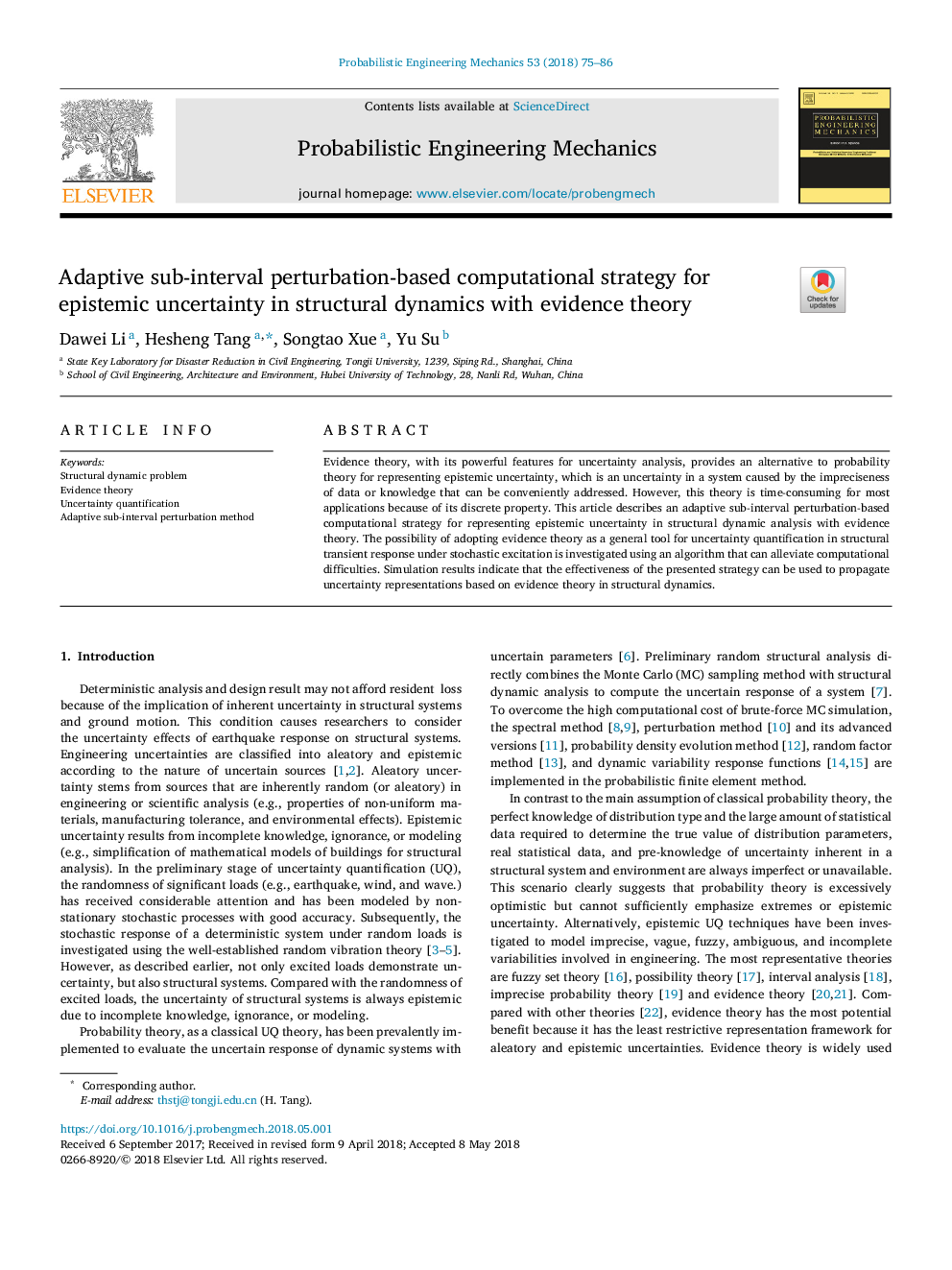| Article ID | Journal | Published Year | Pages | File Type |
|---|---|---|---|---|
| 7180879 | Probabilistic Engineering Mechanics | 2018 | 12 Pages |
Abstract
Evidence theory, with its powerful features for uncertainty analysis, provides an alternative to probability theory for representing epistemic uncertainty, which is an uncertainty in a system caused by the impreciseness of data or knowledge that can be conveniently addressed. However, this theory is time-consuming for most applications because of its discrete property. This article describes an adaptive sub-interval perturbation-based computational strategy for representing epistemic uncertainty in structural dynamic analysis with evidence theory. The possibility of adopting evidence theory as a general tool for uncertainty quantification in structural transient response under stochastic excitation is investigated using an algorithm that can alleviate computational difficulties. Simulation results indicate that the effectiveness of the presented strategy can be used to propagate uncertainty representations based on evidence theory in structural dynamics.
Related Topics
Physical Sciences and Engineering
Engineering
Mechanical Engineering
Authors
Dawei Li, Hesheng Tang, Songtao Xue, Yu Su,
